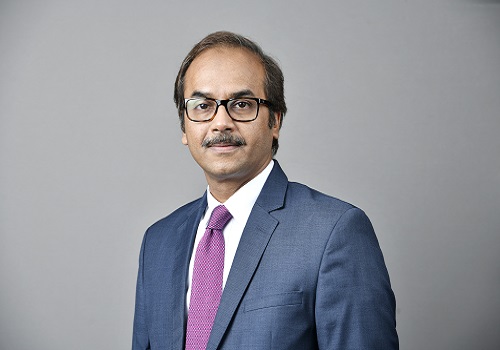67% Indians consider themselves retirement ready: PGIM India Mutual Fund Retirement Readiness Survey 2023

Retirement’ is climbing the ladder in financial priority for Indians, reaching 6th position in 2023 from 8th in the 2020 survey.
Earlier, retirement was largely associated with fulfilling obligations for family. Over the years, it’s definition has transcended to seeking self-worth and self-identity – nurturing their inner self by taking care of themselves and exploring their interests. Today, Indians are seeking control over their finances without compromising their aspirations, reveals PGIM India Retirement Readiness Survey 2023.
Two important facets related to money that the pandemic seems to have had an impact on are:
A positive facet:
Money is perceived as a ‘safety net’ towards unexpected/expected exigencies; ‘an enabler’ – to fulfil one’s commitments towards their family and a ‘signifier of being competent’- seeking social respect and pride. Post pandemic, it has evolved to newer dimensions of ‘seeking freedom’ – i.e., executing responsibilities without having to compromise ones’ lifestyle and aspirations’ e.g., having a bigger house, quality education for children to upgrading their lifestyle through fashion, tech, décor choices, vacations, etc.
A negative facet:
‘Making and managing’ money has a direct impact on their ability to fulfill their commitments and responsibilities. In the negative facet, if one is unable to manage their money well, due to lack of expertise or inability/delayed adoption to the growing financial digital world – it can lead to social embarrassment, low self-esteem and/or a sense of lack of control, leading to building up of debt and liabilities.
PGIM India Mutual Fund, a wholly owned business of PGIM, the global investment management business of Prudential Financial, Inc. U.S., recommissioned NIQ, the leaders in global measurement, to conduct another round of Retirement Readiness Survey with 3009 Indian participants, residing across 9 metro and 6 non-metro cities, to gauge attitudes and behaviours towards their overall financial planning, especially planning for their retirement. This also aided the fact that the findings could be compared in the light of the impact of the pandemic on one’s behavioural, attitudinal, and financial aspects of dealing with money.
Key findings from the survey:
• Income allocation to loans and liabilities increases with increase in personal income. Indians are allocating 59% of their money to household expenses and a good 18% to paying off loans, a bit more than 2020 survey findings.
• There has been a conscious effort towards building human capital, where 5% of income is allocated towards skill development or education loans.
• 48% respondents reported that pandemic has led to changes in their attitude, behaviour, and planning finances - Indians have become more financially conscious, planned and disciplined
• With lower income, there’s a higher focus on generating more returns & being financially secure. As income increases, other facets like reaching a higher position in the current workplace and developing a passive income source takes precedence.
• Identity’ & ‘Self Worth’ are no longer just limited to fulfilment of roles & responsibilities but is also taking care of & knowing oneself.
• Post pandemic, Indians have started putting more emphasis on long-term commitments like medical emergencies and retirement planning, in addition to family security.
• Worry about ‘lack of an alternate source of income’, related to managing finances post pandemic showed a significant jump from 8% in 2020 to 38% in 2023.
• Post pandemic, ‘Inflation’ and ‘Economic Slowdown’ came on the top list of worries related to managing finances post-retirement - it doubled compared to 2020 survey, indicating the impact of recent macro-economic challenges.
• Encouragingly, 67% of Indians say they are ready for retirement, which has emotional benefits overall, leaving them having a positive outlook about work and life. Those who planned for their retirement generally started it around 33 years of age & those who haven’t, intend to start in their 50s.
• From 10% in 2020 to 23% in 2023, the preference towards Mutual Funds show more traction over direct Equity/Shares and Exchange Traded Funds (ETFs). That said, Indian investors still prefer fixed income instruments and insurance.
• With changing lifestyle and macro-economic conditions, Indians think they require 10-12 times of their annual income to build their retirement corpus, up from 8-9 times in the 2020 survey.
• Contrary to what we saw in the pre-Pandemic era in the 2020 survey, Indians have now started associating financial security with independence—staying in joint family units no longer fosters a greater sense of financial security. Only 70% respondents (2023) compared to 89% in 2020 survey reported they feel financially secure staying in joint families.
• Having an alternate source of income significantly increases the sense of preparedness for retirement. Of 36% respondents who have an alternate income source, 42% get an extra income from investing in financial assets.
• Indians seem to need a bit more handholding and support to efficiently plan for retirement, investing in insurance and seeking advice from insurance agents is considered being financially secure or planned for retirement. Around 2/3rd of respondents who took financial advice took it from insurance agents and a small percentage from Registered Investment Advisors.
• Sharing workload on managing money is the most valued aspect about advisors, by those who seek financial advice. However, today only 10% of those who have a retirement plan, seek proper financial planning services from a Registered Investment Advisor and only 16% of those who have a written plan, have vetted their plan with a Registered Investment advisor.
• Even though the loyalty of over 55% individuals to their organizations has grown, a significant majority, about one third experience financial anxiety. Out of which around 2/3rd believe it negatively impacts their productivity for at least half of the day.
• Organizations can impact successful retirement planning and ensure financial wellness among their employees, thereby reaping benefits of increased employee loyalty and productivity. 1 in 2 respondents felt that their loyalty towards their employer would increase if the employer drives or facilitates their retirement/financial planning.
Mr. Ajit Menon, CEO, PGIM India Mutual Fund, said, “We saw a visible attitudinal and a behavioural shift overall, where the pandemic seems to have impacted certain significant aspects. The emphasis on ‘self-Identity’, ‘Self-Care” & ‘Self-Worth’ have emerged as more important than ever alongside fulfilling roles and responsibilities towards one’s family.”
Dr. Sagneet Kaur, SVP, Behavior Finance & Consumer Insights, PGIM India Mutual Fund, said, “Overall, the rise of retirement planning among Indians is a positive trend that reflects a growing awareness of the importance of financial planning for long-term financial security. This trend will gain momentum if we truly understand and build products to nudge investors overcome their behavioural biases while investing for long term - as biases can tempt even the most discerning investor to abandon their well-established long-term strategies for the pull of immediate gratification driven by short-term emotions and desires.”
Above views are of the author and not of the website kindly read disclaimer























